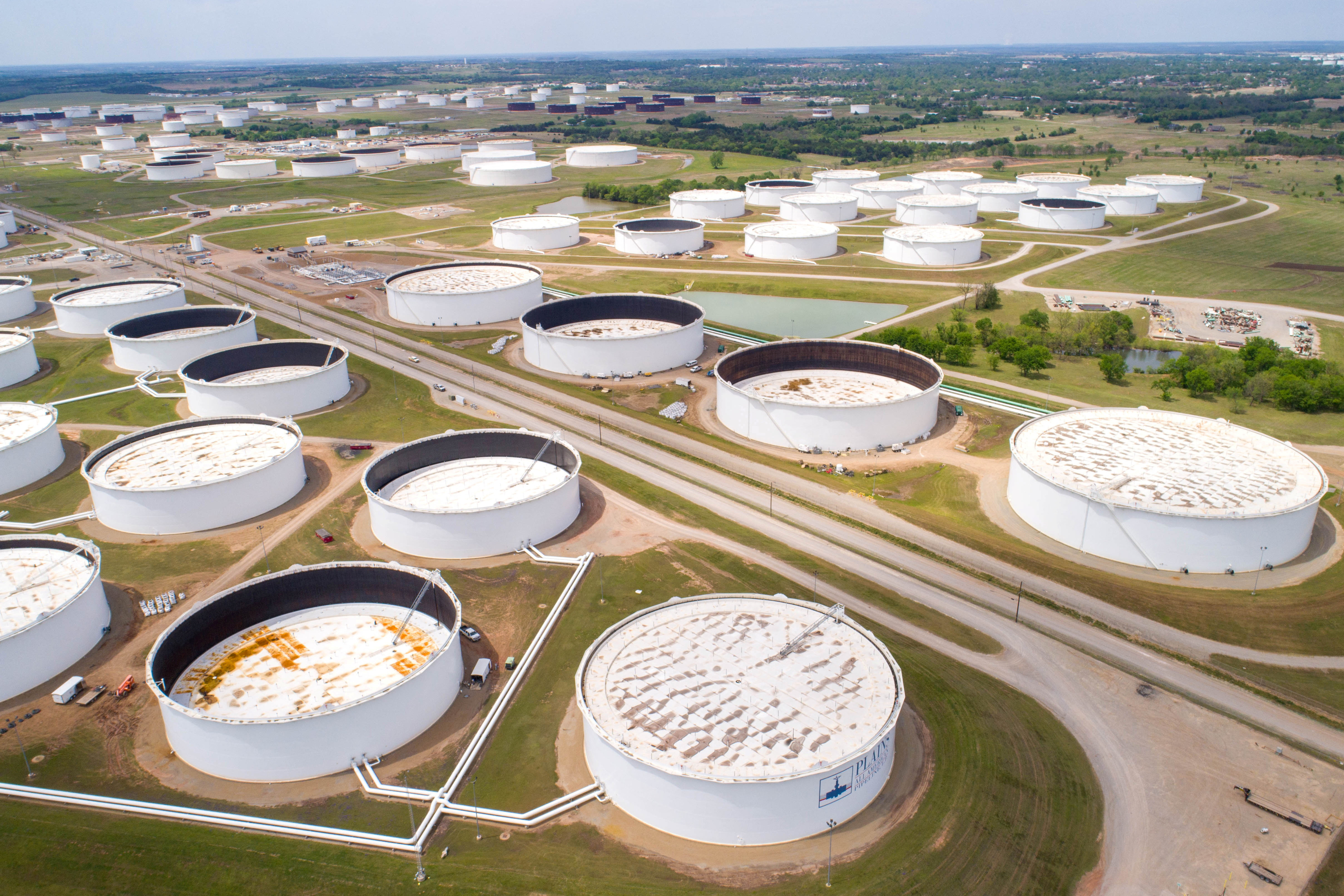
Crude oil storage tanks are seen in an aerial photo at the Cushing Oil Center in Cushing, Oklahoma, on April 21, 2020. REUTERS/Drone Base/File Photo Obtaining licensing rights
LONDON (Reuters) – Brent crude futures settled above $90 a barrel on Monday after topping the limit on Friday as investors waited to see whether the conflict between Israel and Hamas would attract other countries.
By 0855 GMT, Brent crude futures fell 39 cents, or 0.43 percent, to $90.50 per barrel. US West Texas Intermediate crude fell 26 cents, or 0.3 percent, to $87.43 a barrel.
Both benchmarks rose about 6% on Friday, with Brent rising 7.5% over the week and West Texas Intermediate crude 5.9%, as investors appreciated the possibility of a broader conflict in the Middle East.
The war between the Islamist Hamas movement and Israel poses one of the most significant geopolitical risks to oil markets since the Russian invasion of Ukraine last year, amid concerns about any potential escalation involving Iran.
Iran warned on Saturday that if Israel’s “war crimes and genocide” were not stopped the situation could spiral out of control with “far-reaching consequences.”
As fears of conflict mount, US Secretary of State Antony Blinken will return to Israel on Monday to talk “about the way forward” after several days of shuttle diplomacy between Arab countries.
Israel on Monday denied agreeing on a ceasefire in the southern Gaza Strip after security sources in Egypt earlier said that an agreement had been reached to stop air strikes and allow foreigners to leave the area and allow aid to enter.
“Investors are trying to figure out the impact of the conflict while the large-scale ground offensive has not begun after the 24-hour deadline in which Israel told residents of the northern half of Gaza for the first time to flee to the south,” Hiroyuki Kikukawa said. Chairman of NS Trading, a unit of Nissan Securities.
The foreign ministers of China and Russia met in Beijing on Monday, where they discussed the conflict between Israel and Hamas.
“It remains a volatile and ugly situation for the price forecast with little chance of a return to a relatively normal market, however post-Covid/Ukraine,” said John Evans, analyst at PVM.
Otherwise, last week the United States imposed its first sanctions on the owners of tankers carrying Russian oil at prices above the G7 price ceiling of $60 per barrel, in an attempt to plug loopholes in the mechanism designed to punish Moscow for its invasion of Ukraine.
Russia is one of the world’s largest exporters of crude oil, and heightened US scrutiny of its shipments could reduce supplies.
(Reporting by Robert Harvey in London, Yuka Obayashi in Tokyo and Emily Chow) Editing by Susan Fenton
Our standards: Thomson Reuters Trust Principles.

“Typical beer advocate. Future teen idol. Unapologetic tv practitioner. Music trailblazer.”






/cloudfront-us-east-2.images.arcpublishing.com/reuters/B6ZNIOAF5ZP7BG4JTJVX2A237Q.jpg)
More Stories
JPMorgan expects the Fed to cut its benchmark interest rate by 100 basis points this year
NVDA Shares Drop After Earnings Beat Estimates
Shares of AI chip giant Nvidia fall despite record $30 billion in sales